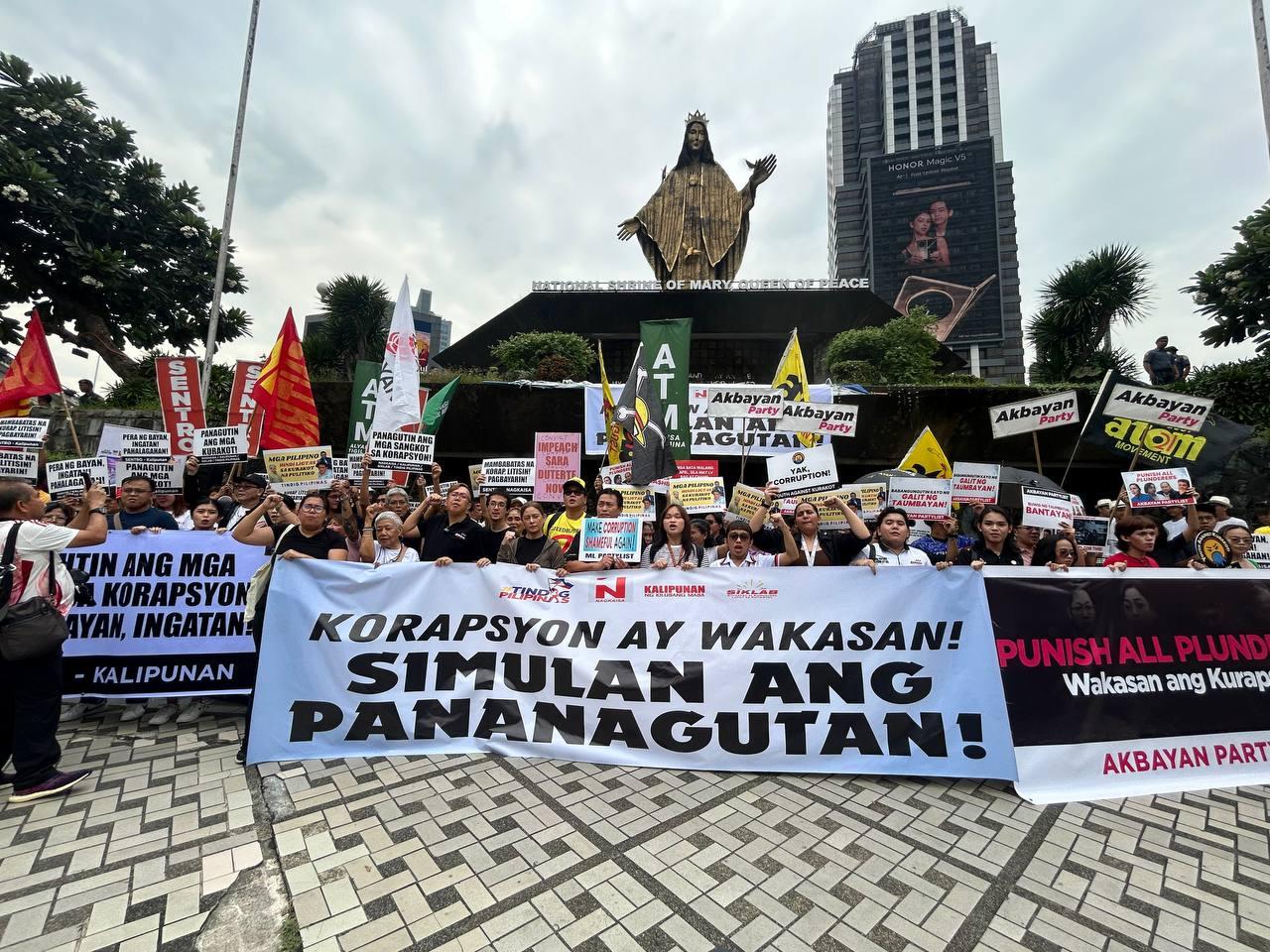MANILA, Philippines – Hundreds of Filipino protesters joined a Mass at a historic Catholic shrine to condemn the corruption of flood control projects worth billions of pesos, the country’s biggest corruption scandal in over a decade.
It was a prelude to bigger protests on September 21, organized by Catholic and Protestant leaders, that are expected to draw thousands of participants.
Father Robert Reyes, an activist priest, led this Mass at the 300-seater EDSA Shrine, a church that commemorates a bloodless church-backed revolution in 1986. While criticizing politicians, Reyes urged citizens to first examine the ways they take part in corruption.
Reyes said corruption goes beyond the Department of Public Works and Highways (DPWH), which is under scrutiny for anomalous flood control projects, and private contractors such as Sarah Discaya, who has made headlines for allegedly colluding with corrupt politicians.
“We have to first look at ourselves. Is it only Discaya? Is it only the contractors? Is it only the DPWH?” Reyes said at the jam-packed shrine on September 11. “Is there a Discaya in each and every one here?”
Reyes alluded to the Philippines’ reputation as the biggest Catholic-majority country in Asia. Nearly 8 out of 10 people belong to the Catholic Church in the Philippines, a former Spanish colony where Catholicism was once the state religion.
“Is the Filipino holy? Yes, if one listens to the Word of God. Is the Filipino considered Christian or pagan? Christian, if one listens and lives out the Word of God. Most of the senators are Catholic. Most of the congressmen are Catholic,” Reyes pointed out.
The corruption of flood control projects is now the biggest news in the Philippines, after it was exposed by President Ferdinand Marcos Jr. and later investigated by Congress. The Department of Finance said flood control corruption cost the country up to P118.5 billion ($2.08 billion) over the past two years alone.
Catholic bishops and priests are at the forefront of this new battle against corruption.
Historically, the Catholic Church has played a significant role in the country’s politics, ever since the Philippines was a Spanish colony under the influence of Catholic friars. In 1986, a Manila archbishop helped in mounting the EDSA People Power Revolution that ousted dictator Ferdinand E. Marcos, the current president’s father.
Reyes, who often participates in public protests, emphasized the need for prayer.
“Bless those who curse you, pray for those who persecute you: the corrupt, the contractors, the politicians, I pray for all of you every day,” Reyes said. “It is our obligation, as priests, not to stop praying for the sinful. First of all, we have to pray for and change our sinful selves.”
More church-led protests are expected in the coming days. The biggest, so far, is the September 21 protest led by the Church Leaders Council for National Transformation.
Bishop Roberto Gaa of the Diocese of Novaliches, in northern Metro Manila, is one of the Catholic leaders supporting the September 21 protest.
“This is not just a financial scandal. It is a betrayal of dignity and life itself. Every peso stolen is a life put at risk. Every corrupt deal is a flood that submerges our nation’s future,” Gaa said.
Bishop Jose Colin Bagaforo of the Diocese of Kidapawan, in the southern Philippines, said: “We cannot remain silent while our people wade through floods that could have been prevented if public funds were used honestly. To steal what belongs to the poor is not only a crime against the nation, but a grave sin against God.”
Lay Catholic groups have likewise spoken up on the issue.
Couples for Christ (CFC), one of the country’s biggest Catholic organizations, said the flood control scandal has given a face to plunder. CFC said that while corruption is infuriating, “there is hope,” especially as citizens join the clamor for change.
Missionary Families of Christ (MFC), another lay Catholic group, said the controversy shows the need for “a renewal of the faith life of the Filipino.”
MFC said Filipinos should go beyond “going to Mass out of obligation” or engaging in a form of cafeteria Catholicism “where you just pick and choose what to believe.” “We need to live out our faith every day,” the group said.















